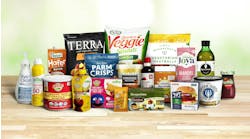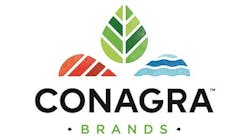Copyright © 2005 Associated PressShow a group of nutritionists a 10-ounce restaurant hamburger and a side order of onion rings and have them calculate the number of calories in the meal. Easy, right?Well, not exactly. The food experts consistently underestimated the 1,550-calorie meal -- by an average of 685 calories -- in a study of 200 dietitians that was conducted by the Center for Science in the Public Interest and New York University."If well-trained food professionals can't accurately estimate calorie content in a plate of food, you can be sure the average consumer is at a loss when looking at a menu," said Claudia Malloy of CSPI in Washington, which co-sponsored the study and is lobbying to force restaurants to provide nutrition information on the foods they serve.A half-dozen states are considering food-labeling laws for restaurants. Under a recent proposal in the New Jersey Assembly and pending in committee, chain and fast-food restaurants with 20 or more franchises would have to post calorie counts on their menu boards, and more-extensive information about their food offerings, such as trans fats and saturated fats, salt and cholesterol, on menus.Many chain restaurants already make nutrition information available, although the information isn't always publicly posted.Nutrition labeling bills may have gained momentum with the recent success of "Supersize Me," an Oscar-nominated documentary that exposed the health risks of a fast-food diet, and publicity over a lawsuit that blamed McDonald's for the obesity of teen-age customers.To the New Jersey Restaurant Association, such proposals amount to overregulation in an industry struggling to turn a profit. "Our position is that the individual who is concerned about obesity should emphasize healthy lifestyle, personal responsibility, regular exercise and moderation," said Dale Florio, legislative counsel for the state restaurateurs. "Seventy-six percent of all meals are prepared at home. That's where nutrition has to start."No one on either side of the issue believes posting calorie and fat content will produce drastic changes in what people eat. But proponents say such information could lead diners to make healthier selections and would provide sorely needed information to those with health problems who need special diets."When they purchase foods at restaurants, most people are using their instincts and their desire," said Daniel J. Hoffman, assistant professor of nutritional sciences at Cook College in New Brunswick, N.J.He added, "This is a nice compromise between telling people what they should eat when they're out at a restaurant and giving them information so they have the power to choose."This bill pushes informed choices," he said. "The misconception is that if you are overweight you are grossly overconsuming. One hundred calories extra each day over a decade will give you 50 pounds."Assemblyman William D. Payne, an Essex Democrat who is co-sponsor of the New Jersey measure, said he is concerned about obesity and its related health consequences, especially among minorities. He partially blames convenience foods for the various health problems."Fast foods are available, they're cheaper than preparing meals at home," he said. "What's happened is the excessive calories have contributed to the problem of obesity. It's a crisis. Anything we can do to turn it around, we should do."
Latest from Business Strategies
Latest from Business Strategies

